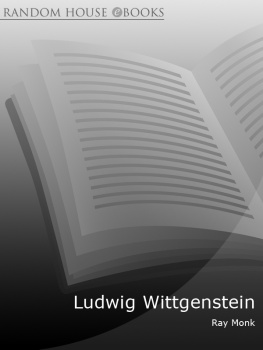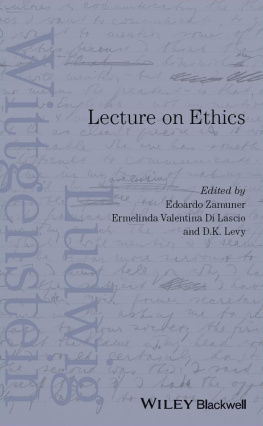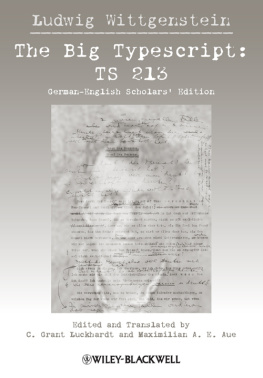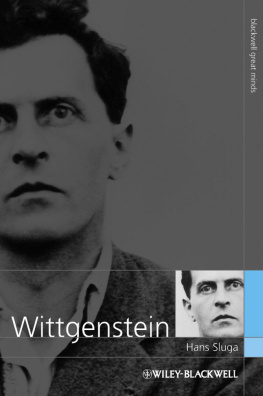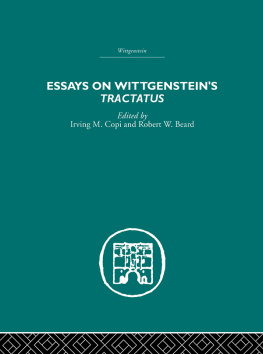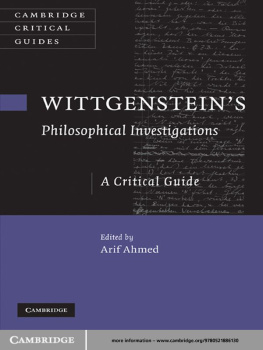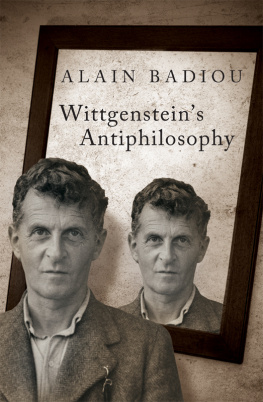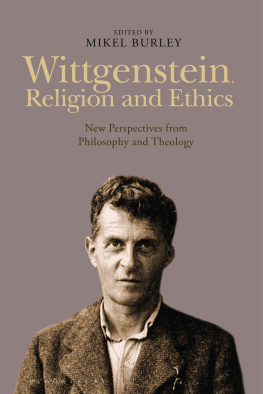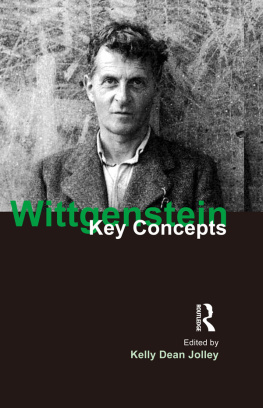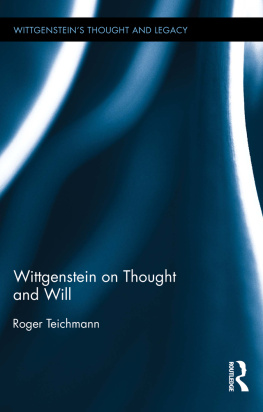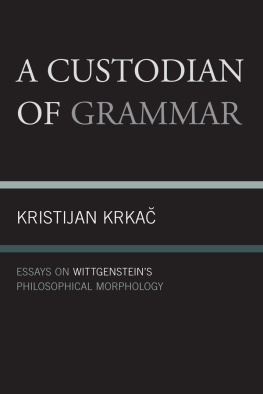Showing and Doing
Interventions: Education, Philosophy & Culture
Michael A. Peters & Colin Lanskhear, Series Editors
Education, Globalization, and the State in the Age of Terrorism
edited by Michael A. Peters (2005)
Beyond Learning: Democratic Education for a Human Future
by Gert J. J. Biesta (2006)
Democracy, Ethics, and Education: A Thin Communitarian Approach
by Mark Olssen (2007)
Toward an Imperfect Education: Facing Humanity, Rethinking Cosmopolitanism
by Sharon Todd (2009)
Good Education in an Age of Measurement: Ethics, Politics, Democracy
by Gert J. J. Biesta (2010)
Showing and Doing
Wittgenstein as a Pedagogical Philosopher
by Michael A. Peters, Nicholas C. Burbules, and Paul Smeyers
First published 2008 by Paradigm Publishers
Published 2016 by Routledge
2 Park Square, Milton Park, Abingdon, Oxon OX14 4RN
711 Third Avenue, New York, NY 10017, USA
Routledge is an imprint of the Taylor & Francis Group, an informa business
Copyright 2008, 2010, Taylor & Francis.
All rights reserved. No part of this book may be reprinted or reproduced or utilised in any form or by any electronic, mechanical, or other means, now known or hereafter invented, including photocopying and recording, or in any information storage or retrieval system, without permission in writing from the publishers.
Notice:
Product or corporate names may be trademarks or registered trademarks, and are used only for identification and explanation without intent to infringe.
Peters, Michael A.
Showing and doing : Wittgenstein as a pedagogical philosopher / Michael A.
Peters, Nicholas C. Burbules, Paul Smeyers.
p. cm. (Interventions: education, philosophy, and culture)
Includes bibliographical references and index.
ISBN 978-1-59451-448-7 (hardcover : alk. paper) ISBN 978-1-59451-449-4 (pbk.)
1. Wittgenstein, Ludwig, 18891951Criticism and interpretation.
2. EducationPhilosophy. I. Burbules, Nicholas C. II. Smeyers, Paul.
III. Title.
LB775.W592P47 2008
370.1dc22
2007048236
Designed and Typeset by Straight Creek Bookmakers.
ISBN 13: 978-1-59451-449-4 (pbk)
ISBN 13: 978-1-59451-448-7 (hbk)
for James D. Marshall
Contents
Nicholas C. Burbules, Michael A. Peters, and Paul Smeyers
Michael A. Peters
Paul Smeyers and Michael A. Peters
Nicholas C. Burbules and Michael A. Peters
Paul Smeyers
Michael A. Peters
Michael A. Peters
Michael A. Peters
Nicholas C. Burbules and Paul Smeyers
Paul Smeyers and Nicholas C. Burbules
Nicholas C. Burbules
Paul Smeyers and Nicholas C. Burbules
Philosophy-as-Pedagogy
Michael A. Peters
Wittgenstein has recently been given a new reading that is consonant with his status as a pedagogical philosopher, as one that teaches us to reframe the guiding metaphors that guide our inquiries and to release ourselves from the confusions generated by accounts of language and culture that proceed from old metaphysical assumptions. The new paperback edition of this work seemed an ideal opportunity to develop more fully a view of philosophy-as-pedagogy, which I elaborate here, and in tune with the separately authored chapters, my co-authors Nicholas Burbules and Paul Smeyers provide a postscript.
The new Wittgenstein coalesces around a series of shared protocols that embrace aspects of standard interpretations1: Ludwig Wittgenstein is not advancing theories in philosophy but rather employing a therapeutic method to deconstruct linguistic and philosophical puzzles; he is helping us to work free of the confusionsdeep disquietudesthat become evident when we begin to philosophize; at the same time, Wittgenstein is disabusing us of the notion that we can stand outside language and command an external view, and that such an external view is both necessary and possible for grasping the essence of thought and language. On the new reading, Wittgenstein encourages us to see that our intuitions about meaning and thought are best accommodated by attention to our everyday forms of expression and to the world those forms of expression serve to reveal (Crary and Read 2000, 1). This new schema for reading Wittgenstein also puts less emphasis on the decisive break in his thought, represented by the Tractatus and the posthumous Investigations, to emphasize, by comparison, significant continuities of his thought centering on his therapeutic conception of philosophy.
The standard narrative, attributed to Michael Dummett (1959) and taken up by scholars such as Saul Kripke (1982) and David Pears (1977), runs: In the Tractatus Wittgenstein advocates a truth-conditional theory of meaning which has the characteristic features of realism, and later on he rejects and embraces a theory of meaning as consisting in assertability-conditions which has the characteristic features of antirealism (Crary and Read 2000, 2). This reading also entails, as we mention in , an emphasis on the shift from the metaphysics of the Tractatus, based on the general form of the proposition and how language pictures the world, to the non-metaphysical descriptions of our linguistic practices (3) of the Investigations. Thus, in contrast to the standard view, the new reading rests on the therapeutic character of Wittgensteins philosophy that abandons of the idea of an external linguistic standpoint.
What is more, the new reading emphasizes that his modes of philosophical criticism and the methods he employs serve to highlight and elucidate his therapeutic aim: The dialectical structure of Wittgensteins writing makes an internal contribution to the philosophical instruction it contains (7). This is what we have called the pedagogical aspects of Wittgensteins later philosophy (see Peters and Marshall 1999) and what the authors of this present book emphasize in calling Wittgenstein a pedagogical philosopher. It is this aspect, as Alice Crary and Rupert Read (2000, 7) point out, that Stanley Cavells early work reveals, and it is a theme that he has returned to again and again in his work. The new reading that emphasizes the therapeutic character of Wittgensteins philosophical aims and method, I would argue, is sympathetic to and consistent with the postmodern view of Wittgenstein that Jim Marshall and I presented in Wittgenstein: Philosophy, Postmodernism, Pedagogy (Peters and Marshall 1999, 1920), which explicitly provides
an emphasis on a literary, cultural and (auto)biographical reading of Wittgensteins works, their intertextuality, the expression of the spirit of European (Viennese) modernism in the Tractatus, and the anticipation of certain postmodern themes in his later works which, on the one hand, cast him in close philosophical proximity to Schopenhauer, Nietzsche and Heidegger and, on the other, project his writings into an interesting engagement with poststructuralist thought.
This cultural reading, in part, was inspired by Cavells work, which we took as an exemplar in reading Wittgenstein both in relation to the movement of modernism and against Wittgensteins Viennese cultural background. Cavells writings also draw widely upon the philosophical tradition and emphasize the parallels between Wittgenstein and many contemporary thinkers, including both Jacques Derrida and Michel Foucault. It is a view with which my co-authors to this work may not entirely agree, and I do not wish to label them with my reading, even though we agree on the outlines of an interpretation that firmly views Wittgenstein as a pedagogical philosopher.


